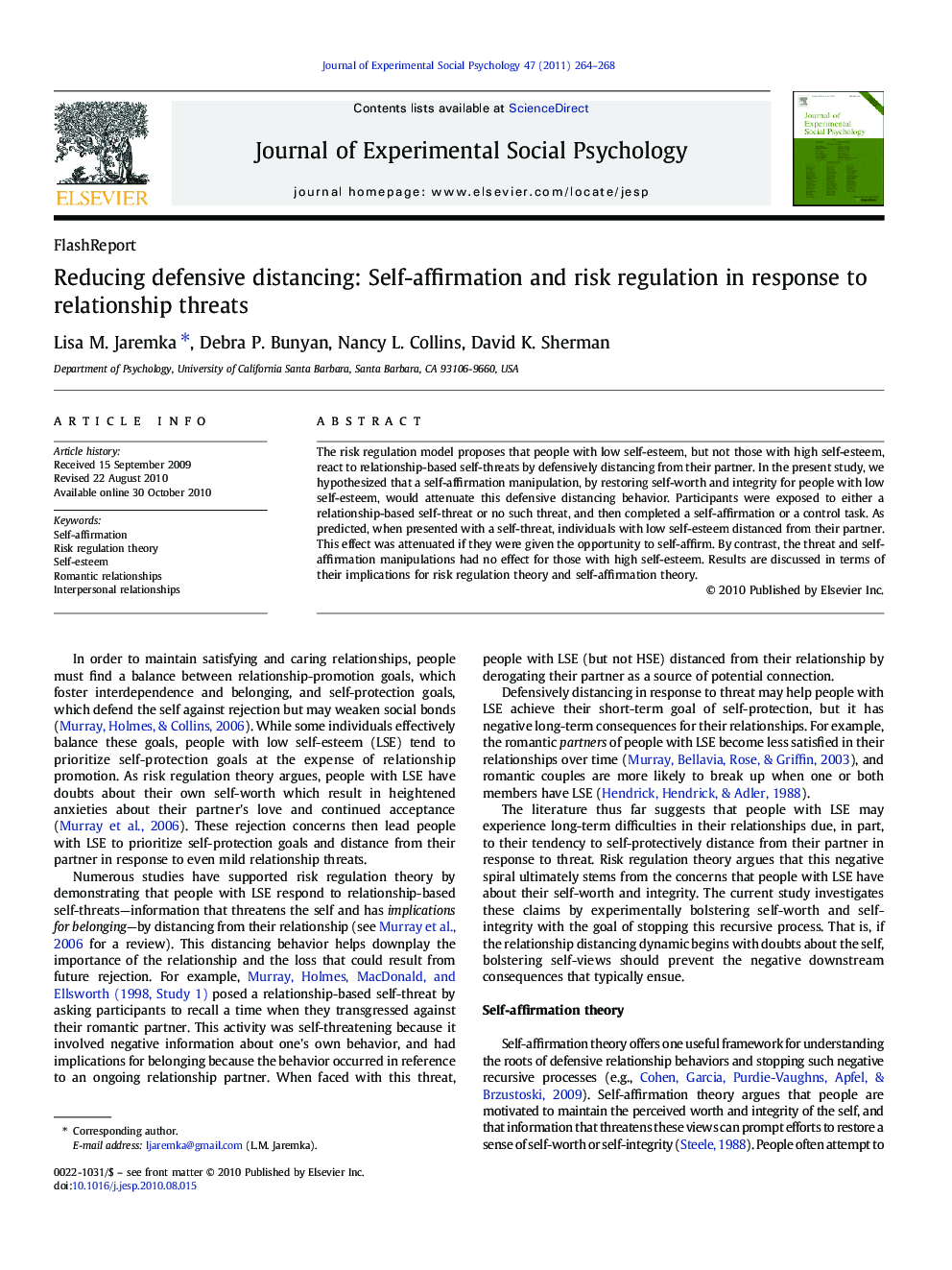| Article ID | Journal | Published Year | Pages | File Type |
|---|---|---|---|---|
| 948356 | Journal of Experimental Social Psychology | 2011 | 5 Pages |
The risk regulation model proposes that people with low self-esteem, but not those with high self-esteem, react to relationship-based self-threats by defensively distancing from their partner. In the present study, we hypothesized that a self-affirmation manipulation, by restoring self-worth and integrity for people with low self-esteem, would attenuate this defensive distancing behavior. Participants were exposed to either a relationship-based self-threat or no such threat, and then completed a self-affirmation or a control task. As predicted, when presented with a self-threat, individuals with low self-esteem distanced from their partner. This effect was attenuated if they were given the opportunity to self-affirm. By contrast, the threat and self-affirmation manipulations had no effect for those with high self-esteem. Results are discussed in terms of their implications for risk regulation theory and self-affirmation theory.
